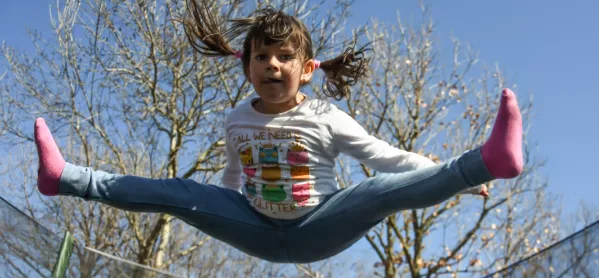Teachers can help parents to give their young children a headstart at school by showing them how to count star jumps and play with finger puppets, a study suggests.
Research published by the Sutton Trust today looked at the impact of informal hands-on workshops for parents on young children’s learning.
Staff at nine schools in the North West were trained by the Manchester-based Parental Engagement Network on how to run the workshops, which covered ideas on educational activities that parents and children could do together - such as fishing ducks out of the bath or counting star jumps.
Parents were invited to up to four workshops a term and were also given resources to take home, such as finger puppets, tambourines and books.
The impact of the workshops was measured by comparing those who took part with parents in another nine schools, through a randomised controlled trial carried out by Fiona Jelley anad Kathy Sylva of the University of Oxford’s department of education.
Parents ‘more likely to provide learning opportunities’
The trial found that parents of children in nursery classes who had taken part in the project were more likely to provide learning opportunities at home than parents who had not.
The home learning opportunities included children and parents reading together, visits to the library, playing with numbers and singing nursery rhymes.
Sarah Rudd, headteacher at Newall Green Primary, in Manchester, said, “I have been very impressed by the uptake and the very positive outcomes from the project. This is exactly what we need - practical, fun ways to engage parents in learning.”
Previous research commissioned by the Sutton Trust showed a 19-month gap in development between the most and least advantaged children at age 5 - a strong predictor of how well children will do later.
“We know that the attainment gap between the richest and the poorest pupils begins before they’ve even started school. Tackling this gap early on is critical to breaking the cycle of disadvantage and improving social mobility,” Sir Peter Lampl, chairman of the Sutton Trust and of the Education Endowment Foundation, said.
Want to keep up with the latest education news and opinion? Follow Tes on Twitter and Instagram, and like Tes on Facebook.





